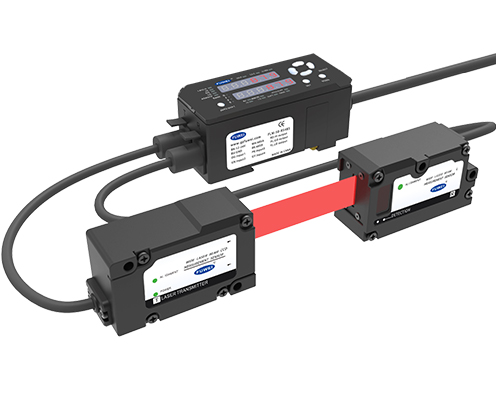Industrial sensors are key components applied in the field of industrial control, which perceive and measure the state and changes of objects, transforming them into processable electronic signals or other forms of information. Industrial sensors play an important role in automatic detection and control, enabling precise monitoring and efficient control of industrial production processes.

1. Types of industrial sensors
There are various types of industrial sensors, which can be divided into displacement sensors, photoelectric sensors, laser sensors, RGB color sensors, label sensors, fiber optic sensors, light curtain sensors, pipeline liquid level sensors, proximity sensors, temperature sensors, flow sensors, vibration sensors, etc. according to their applications. Each sensor has a specific application scenario for monitoring and controlling different process parameters.
2. Application of automatic detection
Industrial sensors can sense and measure the state and changes of objects in real-time, and transmit data to control systems for analysis and processing. Through automatic detection, it is possible to monitor key parameters in the production process, such as displacement, temperature, pressure, humidity, etc., to ensure process stability and product quality.
3. Application of Automatic Control
Based on the data provided by industrial sensors, the control system can perform automatic control operations, adjust and maintain target parameters during the production process. For example, in terms of temperature control, sensors can monitor temperature changes in real-time and provide data feedback to the control system. The system automatically adjusts heating or cooling equipment based on the set temperature range to maintain a stable temperature.
4. Improve production efficiency and safety
The application of industrial sensors can greatly improve production efficiency and safety. Through automatic detection and control, real-time monitoring and adjustment of the production process can be achieved, avoiding errors and delays in manual operations. Sensors can quickly respond to changes and take timely measures to improve production efficiency and reduce accident risks.
5. Data analysis and optimization
The large amount of data generated by industrial sensors can be further analyzed and optimized. By collecting and analyzing sensor data, potential problems and improvement opportunities can be identified, parameter settings and adjustments in the production process can be optimized, and product quality and resource utilization can be improved.
6. Development Trends and Challenges
With the development of Industry 4.0 and the Internet of Things, industrial sensors will further become intelligent and interconnected.